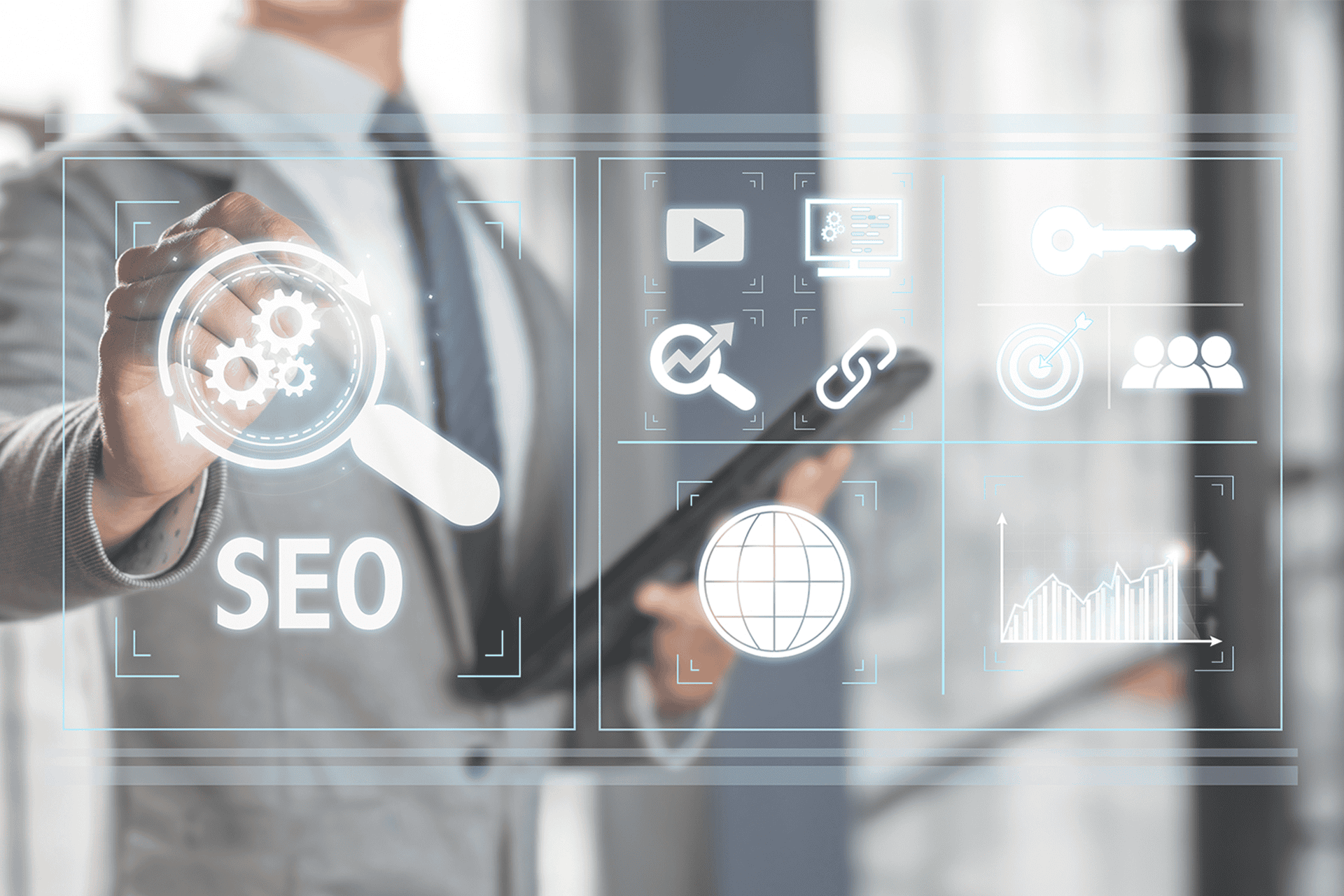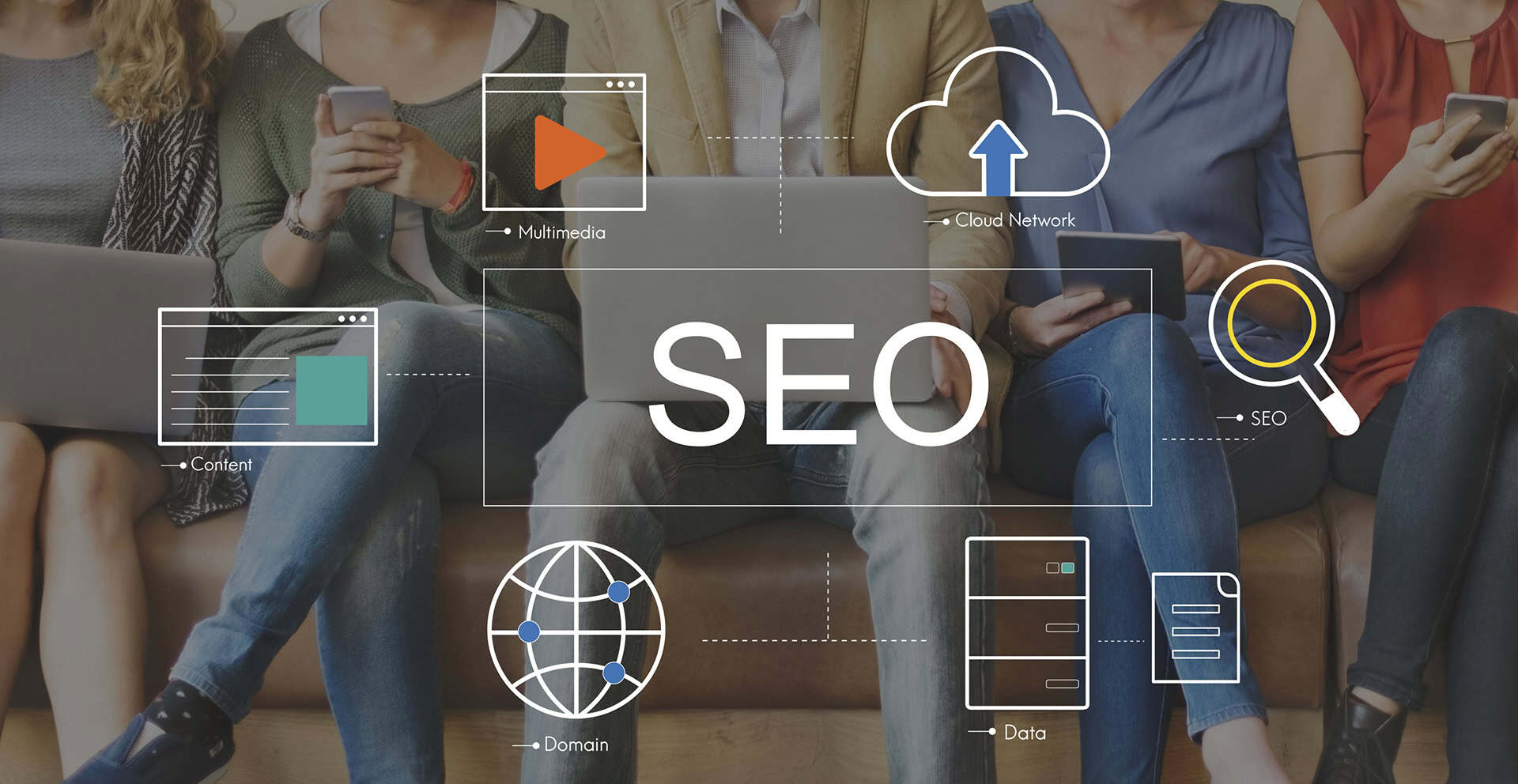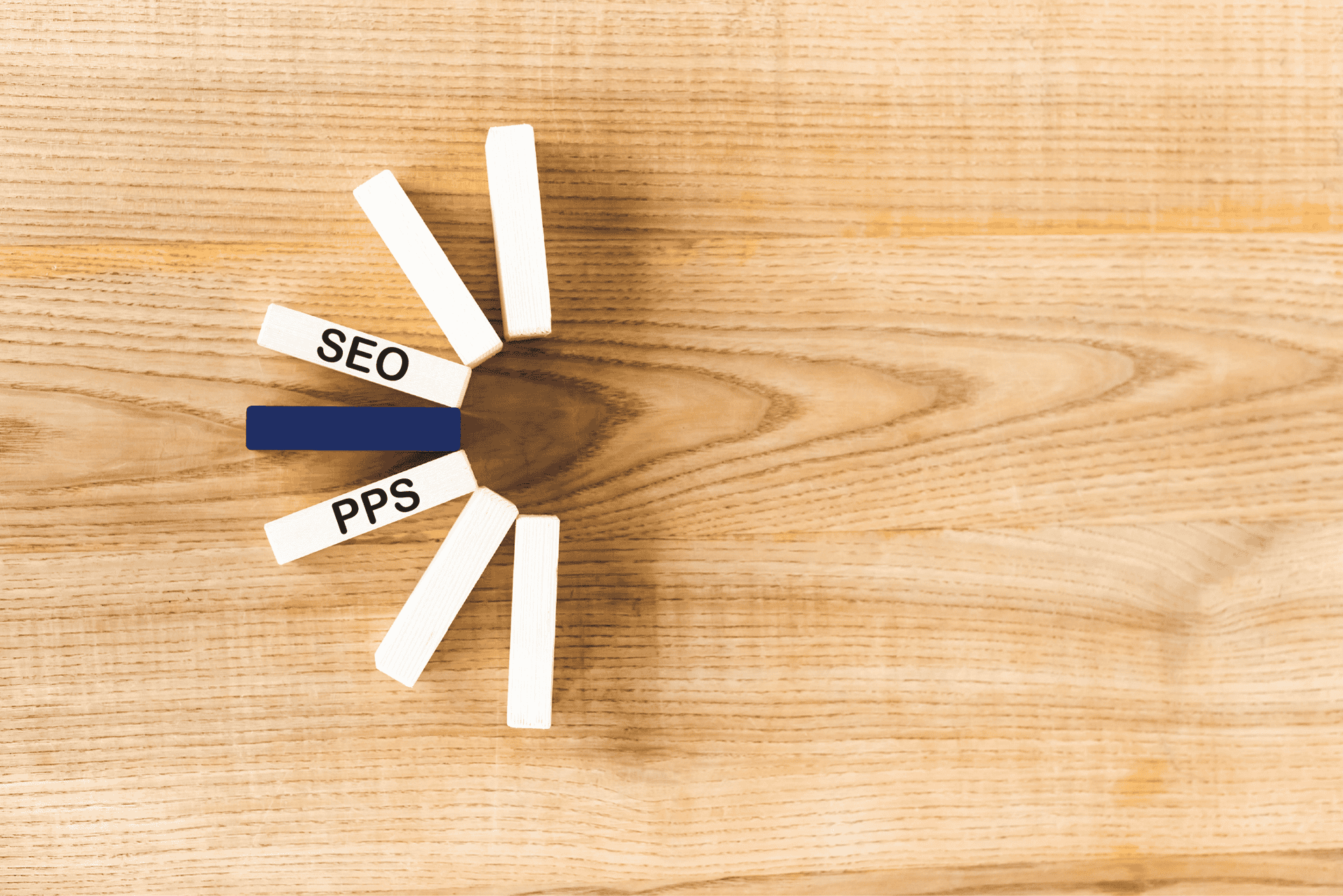Table of Contents
ToggleIf you’re promoting your business online, you’ve probably asked yourself: should I invest in SEO or PPC? Both channels help attract customers through search, but they work differently and deliver different outcomes.
Choosing the right strategy depends on your goals, timeline, budget, and the stage of your business growth. In this article, we’ll break down the difference between SEO and PPC, explain when to use each, and show how combining them can maximize your results.
Key takeaways:
- SEO is an investment, not free traffic.
- PPC can be profitable, not just quick clicks.
- Both can succeed or fail depending on execution.
- The best results come from combining SEO and PPC.
What Is SEO and PPC?
SEO (Search Engine Optimization) is the process of improving your website to increase its visibility in organic (unpaid) search results. It involves optimizing content, technical performance, and backlinks. The main goal is to attract a steady stream of visitors without paying for every click.
PPC (Pay-Per-Click) is an online advertising model where you pay each time a user clicks on your ad. PPC campaigns provide instant visibility in search results or across other platforms such as Google, YouTube, and social media.
What’s the Difference Between SEO and PPC?
The main difference between SEO and PPC lies in how your website gets traffic.
SEO helps you attract free visitors from search engines by building high-quality content, a solid site structure, and authority. It’s a long-term strategy where results don’t appear overnight, but the payoff is lasting growth and stability.
PPC, on the other hand, is paid advertising that delivers traffic almost instantly. You pay for each click, and your ads are displayed as soon as the campaign goes live. But once the budget runs out, the traffic stops too.
In short: SEO drives sustainable growth, while PPC provides fast results and flexibility. For most businesses, the best approach is to combine both strategies to maximize impact.
SEO vs PPC: Side-by-Side Comparison
Criteria | SEO (Search Engine Optimization) | PPC (Pay-Per-Click Advertising) |
Type of traffic | Organic traffic (free clicks in search results) | Paid traffic (pay-per-click model) |
Speed of results | Slow start (3+ months before results) | Immediate visibility once the campaign goes live |
Traffic stability | Sustainable if the site is maintained and updated | Disappears as soon as ads are paused |
Costs | Investment in content, SEO work, and optimization | Ongoing ad budget (flexible but continuous spend) |
ROI | Potentially very high in the long term | Fast returns, but depends on CPC and conversion rates |
Control & flexibility | Limited (subject to algorithms, longer implementation cycles) | Full control over targeting, bids, geo, copy, and scheduling |
User trust | Higher trust – users prefer organic results over ads | Lower trust, especially due to “banner blindness” |
Best suited for | Long-term growth, branding, information coverage | Quick sales, promotions, product launches, A/B testing |
SEO vs PPC – Which Is Right for Your Business?
To make an informed decision, it’s important to understand how SEO and PPC work, what their strengths and weaknesses are, and how they impact your traffic, budget, and overall results. Below, we compare the key aspects of both strategies to help you choose the approach that best aligns with your business goals.
Key Differences Between SEO and PPC
Criteria | SEO (Search Engine Optimization) | PPC (Pay-Per-Click Advertising) |
1. Time to See Results | Takes time (several months), but delivers stable and long-term traffic | Fast start: traffic appears immediately after the campaign launch |
2. Cost and ROI | Requires investment in content, SEO strategy, and optimization. ROI can be high, but only with ongoing updates and maintenance | Enables quick conversions but requires a continuous budget. ROI appears fast, depending on campaign quality |
3. Control & Flexibility | Less flexible: influenced by algorithms and implementation cycles | Highly flexible: budgets, targeting, and creatives can be adjusted instantly |
4. Trust & Perception | Seen as a more reliable and authoritative channel | Effective for specific goals, but users generally trust organic results more |
When to Use SEO vs PPC
The choice between SEO and PPC depends on your goals, timeline, budget, and the stage of your business. Below are practical scenarios where each strategy delivers the strongest impact:
SEO is the right choice if:
- You aim for sustainable traffic and long-term growth.
SEO helps you build a steady flow of organic visitors without continuous ad spend.
- You have resources for content creation and technical optimization.
Successful SEO requires ongoing work on site structure, content, loading speed, and usability.
- Your goal is to build trust and authority in your niche.
Organic search results earn higher trust and strengthen brand recognition over time.
PPC is the right choice if:
- You need quick leads, sales, or conversions.
PPC allows you to generate traffic instantly and test offers, landing pages, and audiences.
- You are launching a new product, running a promotion, or competing in a highly competitive niche.
Paid search gives you full control over budget, targeting, timing, and ad messaging.
- You value measurability and flexibility.
PPC campaigns can be scaled, adjusted, or paused at any time with precise performance tracking.
Key factors to consider when choosing your strategy:
- Timeline – do you need immediate results, or can you wait for organic growth?
- Budget & resources – are you ready to invest in content and SEO, or do you prefer to pay per click?
- Competition – how tough is it to rank organically, and what are the PPC bid costs?
- Long-term goals – is your focus on brand building and sustainable traffic, or do you need short-term sales right now?
Non-Obvious Insights About SEO and PPC
Most comparisons of SEO vs PPC stop at clichés like “SEO is slow but cheap” and “PPC is fast but expensive.” Below are six unconventional observations that will help you look deeper into both strategies:
1. PPC can boost SEO through behavioral signals
While Google doesn’t officially confirm behavioral factors as a ranking signal, in practice paid traffic increases engagement, time on site, and internal link click-throughs. All of this can indirectly improve the ranking of organic pages – especially when landing pages and internal linking are set up smartly. Use PPC to “warm up” the very pages you’re trying to rank organically.
2. SEO can lower your PPC costs
Google Ads evaluates landing page quality. If the same page is optimized for SEO – loads fast, has relevant content, and a solid structure – its Quality Score improves. The result: lower CPC. In other words, strong SEO saves money in PPC.
3. SEO without branded queries = weak strategy
In many industries, 40–60% of organic traffic comes from brand searches (company, product, or personal name). Without branding, PR, and mentions, SEO loses much of its power. Meanwhile, PPC allows you to capture competitors’ branded searches – something SEO cannot do. The best growth model integrates SEO + branding + PPC.
4. SEO doesn’t scale linearly, PPC does – but not infinitely
Doubling your SEO budget won’t double traffic, because SEO is capped by competition, niche size, and query frequency. PPC, on the other hand, can scale instantly (new audiences, geos, lookalikes). But higher spend doesn’t always mean higher profit, as competition drives up CPC and eats into margins. This is critical for businesses expecting unlimited scaling from either channel.
5. In some niches, SEO is almost impossible (and unnecessary)
Examples: micro-products, temporary offers, MVPs, or startups with no search demand. If nobody is searching for “AI-powered plant watering system with blockchain,” SEO won’t work until demand is created. In these cases, PPC is the only way to quickly test ideas, get feedback, and later decide whether to scale. Not every business needs SEO at the start.
6. SEO often reinforces PPC – even on the same queries
Even if a user first clicks a PPC ad and later returns via organic search, they remember the brand, trust it more (you’re visible in both paid and organic), and may come back without ads. These multi-channel interactions often drive conversions, but aren’t fully captured in standard attribution models. The synergy between SEO and PPC is greater than most analytics reports suggest.
Common Myths About SEO and PPC
Myth 1: SEO = Free Traffic
Reality:
While organic clicks don’t have a direct cost, high-quality SEO requires:
- constant content updates
- technical optimization
- internal linking
- UX improvements
- audits and monitoring
Takeaway: SEO is an investment, not a “free” channel.
Myth 2: PPC = Only Fast Clicks With Low ROI
Reality:
With the right setup and optimization, PPC can:
- be profitable even in the long term
- test hypotheses and keywords for SEO
- strengthen brand awareness and capture high-intent demand
Takeaway: PPC isn’t “money wasted.” It’s a tool, not a magic button.
Myth 3: SEO Always Works, PPC Is Temporary
Reality:
- SEO performance can drop after algorithm updates or shifts in search intent.
- PPC can be scaled and stabilized through strategies, automation, retargeting, and funnels.
Takeaway: Both strategies can be sustainable – or fail – depending on execution.
Myth 4: You Must Choose Either SEO or PPC
Reality:
The best approach is a combination of SEO + PPC, where:
- PPC delivers fast data and clicks
- SEO builds long-term authority and traffic
- together they reinforce each other (e.g., through remarketing, A/B testing keywords and landing pages)
SEO is a strategy for long-term growth and building trust. It requires time and investment, but ensures a stable flow of customers in the future.
PPC, by contrast, provides immediate results, flexible campaign control, and precise targeting – though it comes with ongoing costs.
The optimal approach is to combine SEO and PPC: get leads now while building a strong foundation for sustainable growth tomorrow.
At dits.agency, we help businesses find the right balance between SEO and PPC – delivering quick wins today and sustainable growth for the future. Contact us to get your tailored strate.
Also you can read:
Using Local Keywords to Drive Search Traffic That Converts
Zero Search Results: What Your Site Visitors Are Searching For — but Not Finding
5 Main Reasons (Plus 1 Unexpected One) Why Your Google Ads Account Might Be Suspended






